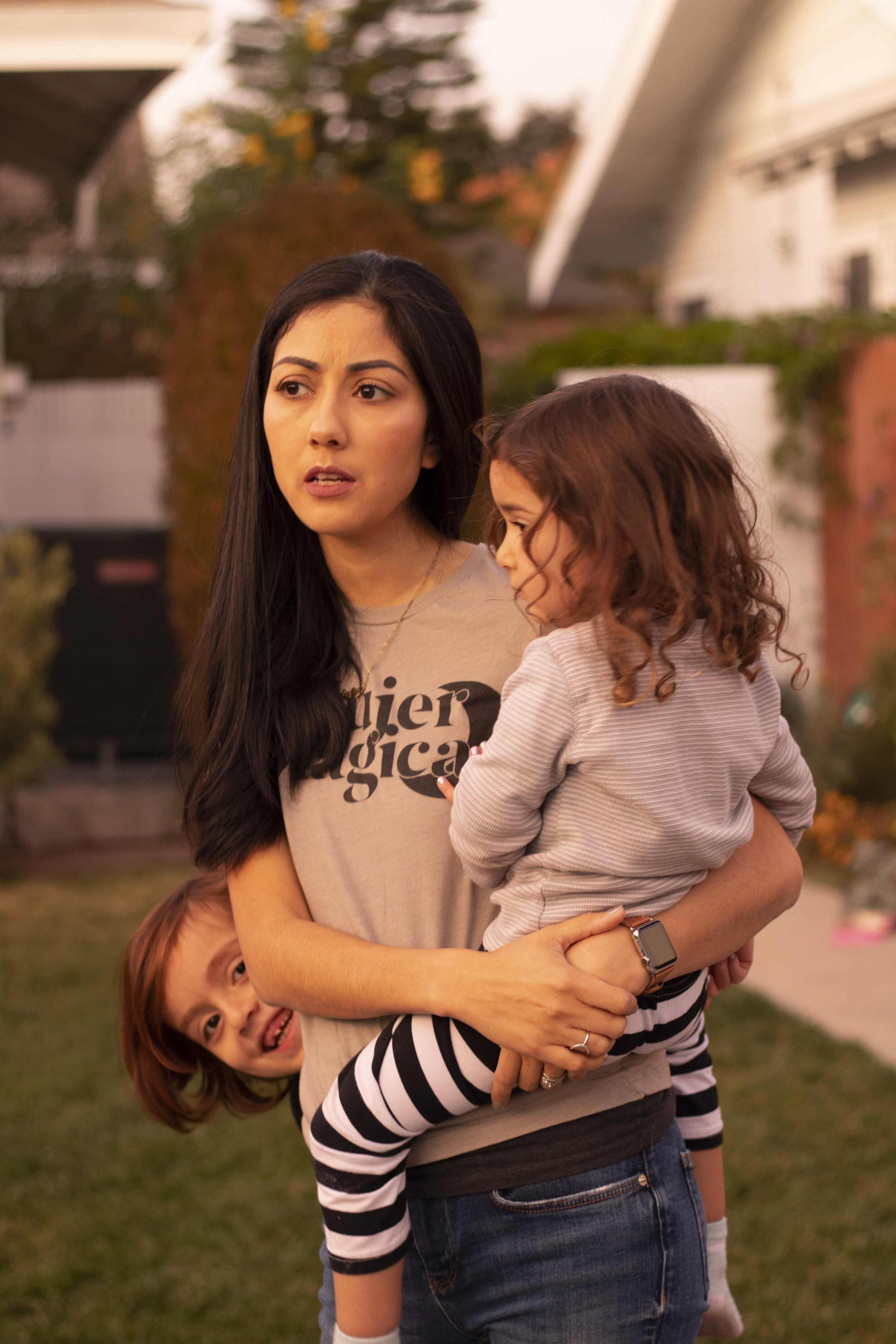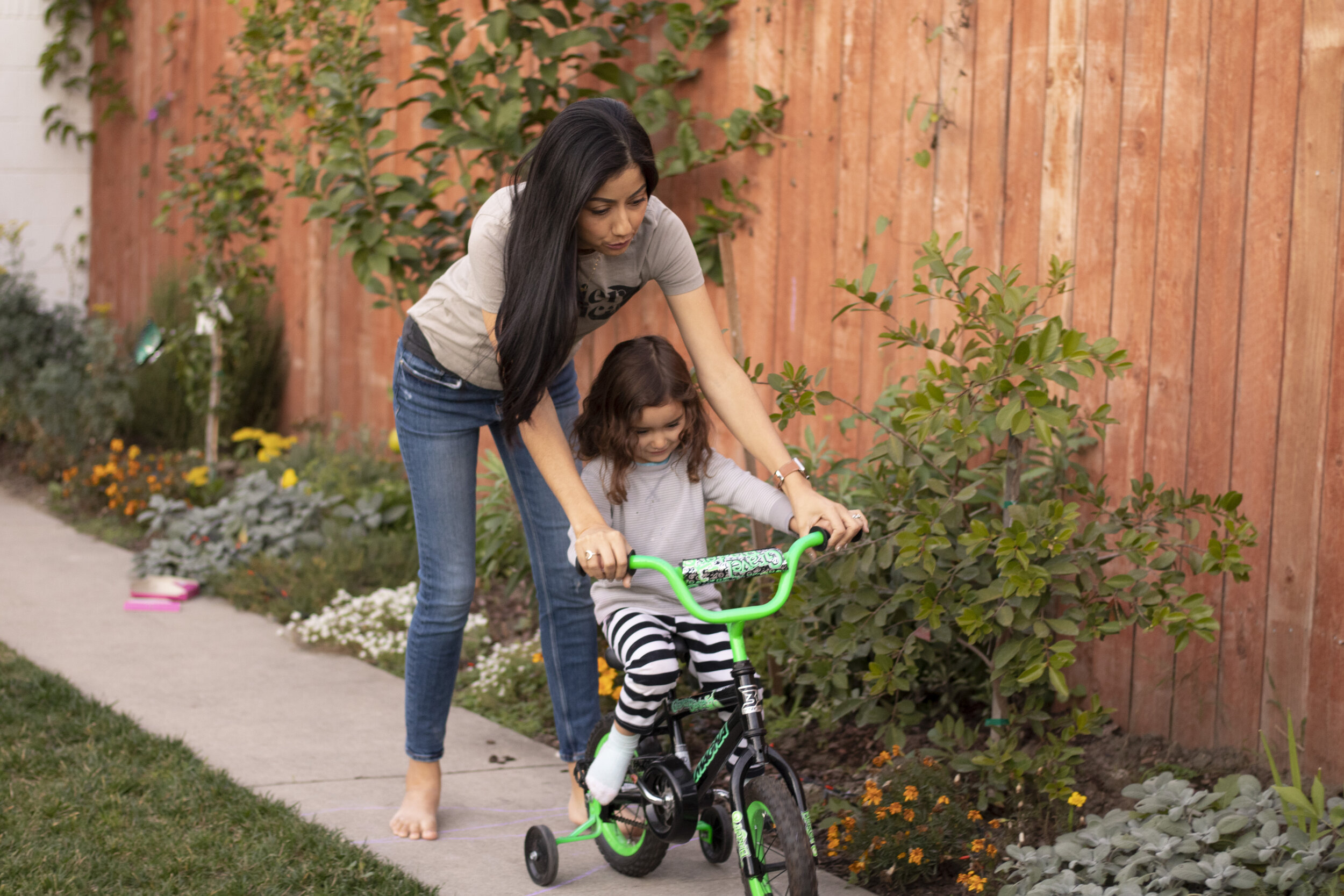Inside Monarca Birth & Postpartum Services
Daisy Hamory and two of her children at their home in Los Angeles.
In the United States, Black, Native American and Alaska Native Women are dying at an alarming rate. According to the Centers for Disease Control, Black, Alaska Native and Native American women are 4-5 times more likely than white women to die of pregnancy-related causes, which can occur during pregnancy, labor and up to one year postpartum. Cardiomyopathy, thrombotic pulmonary embolism, and hypertensive disorders are just a few of the complications women of color experience during pregnancy.
Additionally, depending on the city, the likelihood of a pregnancy-related death or injury heightens for Black and Native American women. In New York City, black women face an even higher risk. According to ProPublica, they are 12 times more likely to die during pregnancy and childbirth than white women.
To put it simply, America is failing our mothers.
The U.S spends more money on health care than any other country in the world yet it is the most dangerous place to give birth among developed nations. For some, the answer is quite obvious: racial disparity.
For Chad Johnson IV, this became a reality when his wife, Kira Johnson died unexpectedly as a result of medical negligence. During a scheduled cesarean section, Kira Johnson’s bladder was cut and by the time her internal bleeding was discovered, the doctors were not able to save her. Now, her husband Chad runs a non profit, 4Kira4Moms, advocating for improved medical health policies and regulations.
Preventing Pregnancy Related Deaths
Daisy Hamory, a xicana doula, is among the sea of doulas and midwives in Los Angeles advocating for safer pregnancies and births. During an interview, Hamory explained how her own traumatic experiences in a hospital prompted her to get involved. After the birth of her second child, she attempted to go home with a doctors approval several times. Despite there being no complications during the labor or postpartum, her doctors insisted on keeping her and her baby for several days, causing unnecessary stress unto her family.
“It felt like I was trying to swim upstream,” Hamory said “They totally blindsided me and called Social Services and had a social worker come and talk to us just because we wanted to go home. I was healthy, my baby was healthy, we didn’t understand it.”
Roughly two years after this experience, Hamory decided to start Monarca Birth & Postpartum Services, where she supports pregnant people by providing services that prioritize people of color with financial need. Although she supports pregnant people of all backgrounds, she admitted that her sole focus is marginalized people.
Hamory concluded that if we want to see a drop in maternal mortality, we need to acknowledge the racism in our healthcare system.
Graph courtesy of California Department of Public Health and Erin Wilkin.
In Daisy Hamory’s backyard, she uses her plants as medicinal herbs for her clients. Photos by: Kenya Staley
Hamory and her daughter playing in the backyard of their home.
Hamory pauses the conversation to help her daughter safely pass by.
Anticipating her clients labor, Hamory prepares one of her medicinal treatments.
Hamory’s finished product, ready for her client.
Daisy Hamory explaining the importance of at home births.








